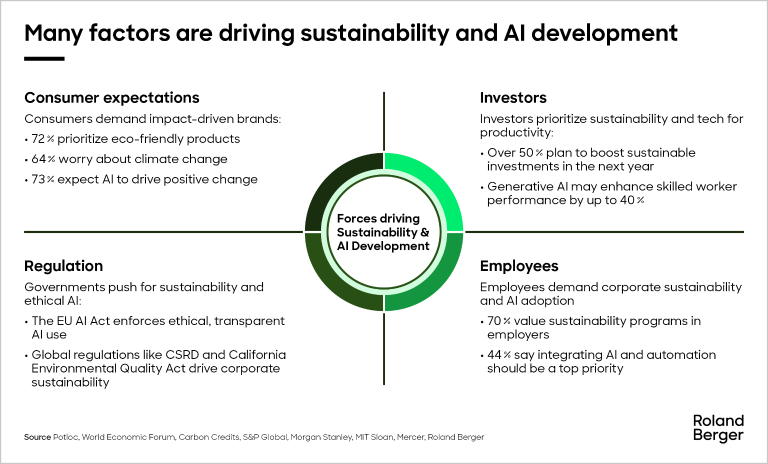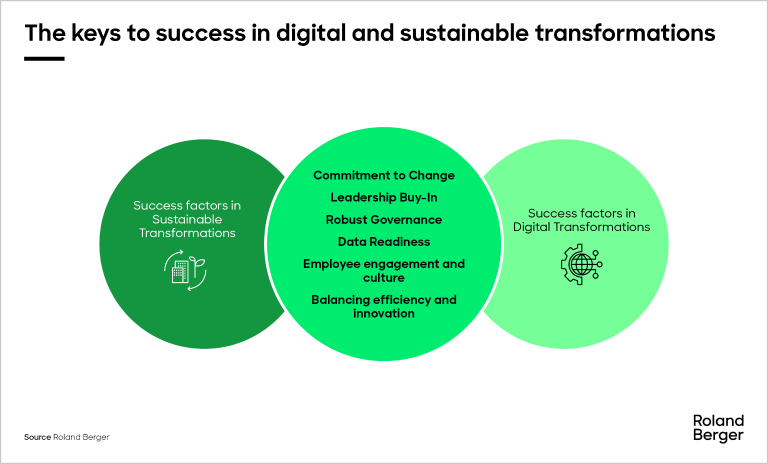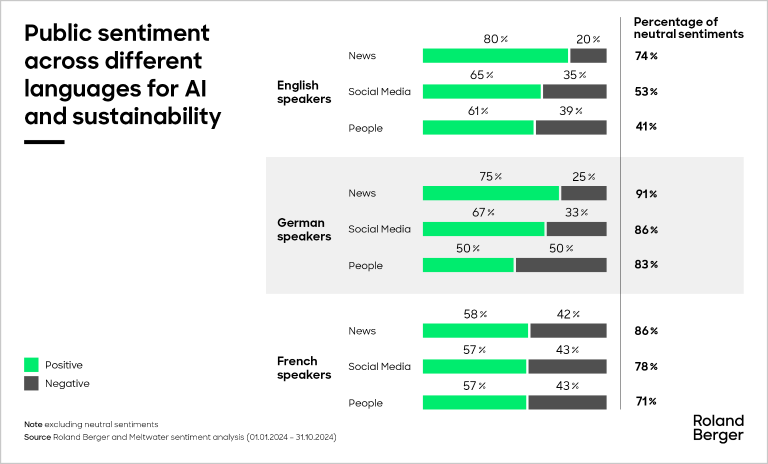Navigating challenges to realize value
While AI and sustainability present vast opportunities, organizations must overcome several hurdles. We have identified three critical complexities that must be addressed.
Despite its many benefits, the energy consumption of AI models, particularly in data centers, remains a concern. Indeed, according to the sentiment analysis, this “blind spot” already presents a risk for investors and the public. Companies must prioritize energy-efficient AI systems and accurate emissions tracking and reporting.
Secondly, AI’s transformative potential must be matched with robust ethical oversight, without which it can reinforce biases and widen inequalities. Strong governance frameworks are essential to ensure responsible AI deployment.
The third challenge lies in aligning AI and sustainability goals. AI’s rapid adoption often prioritizes efficiency and profitability, sometimes at odds with sustainability objectives. Businesses must integrate sustainability considerations into AI development to ensure a balanced approach.
How businesses can drive Twin Transformation
Twin Transformation offers immense potential for organizations to
achieve competitive advantage
while fostering positive societal and environmental impacts. However, this journey is complex and requires a structured approach, strategic alignment, and a commitment to cultural and operational change.
Download our study to find out more and how organizations can begin their Twin Transformation journey!
We would like to thank Daria Mikheeva for her contribution to this study.
![{[downloads[language].preview]}](https://www.rolandberger.com/publications/publication_image/Roland_Berger_WEB_25_2001_AI_and_sustainability_Cover_download_preview.jpg)


















